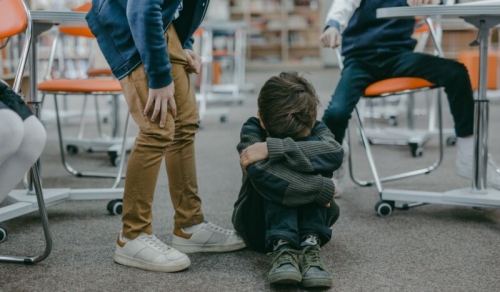What parents should know about bullying
By ANEESA MOIDOO, PSYCHOLOGIST
As a mother, I’m worried about the possibility of bullying affecting my child at school. How can I effectively detect if my child is facing bullying and provide them with the right support? Additionally, could you shed some light on the dynamics of bullying so I can better understand what might be happening and how to address it?”
Absolutely, I understand your concern. Detecting if your child is facing bullying and knowing how to support them effectively is crucial. Here’s a comprehensive approach that combines recognizing signs of bullying, providing support, and understanding the dynamics of bullying. Being vigilant and supportive is essential as bullying can significantly impact a child’s well-being. Watch for changes in behavior, emotions, or habits—such as sudden mood swings, irritability, anxiety, or sadness.
If your child avoids places or activities they used to enjoy, it might signal bullying. Frequent headaches or stomachaches before school could indicate anxiety due to bullies. Social isolation, withdrawn interactions, or declining grades can also be signs.
To assist your child in handling bullying, create a safe space for open discussions. Use open-ended questions like “How was your day?” to encourage sharing. Listen attentively without judgment and validate their feelings. Emphasize that bullying isn’t their fault. Boost their confidence by role-playing assertive responses to bullies.
Collaboration with teachers or school counselors is vital if bullying is suspected. Empower your child with coping mechanisms like deep breathing, walking away, or focusing on positives. Encourage building strong friendships and engaging in activities they love for self-esteem and stress relief.
Online, monitor interactions and educate them about cyberbullying and responsible online behavior. For severe cases impacting well-being, consider involving a mental health professional. Understanding bullying dynamics is crucial. It’s about an imbalance of power—physical strength, social status, or verbal manipulation.
It can be physical, verbal, social, or online. Victims experience low self-esteem, anxiety, depression, academic decline, and social isolation. Teach your child to stand up for others as bystanders often fear intervening. Empower them to control their reactions and seek help when needed, not letting bullies define their self-worth.
Incorporating these insights and approaches into your parenting can create an environment where your child feels safe discussing experiences and seeking help. Your proactive involvement and empathy will significantly help your child navigate bullying’s challenges and emerge stronger.
(The views and opinions expressed in this article are those of the author and do not necessarily reflect the official policy or position of the Daily Tribune)
Related Posts


